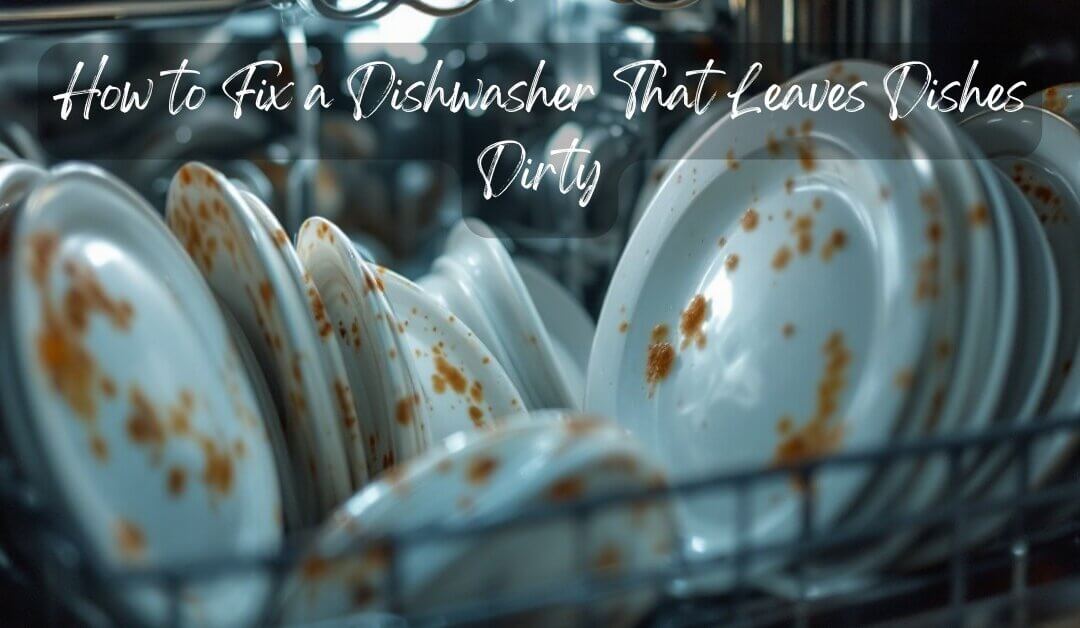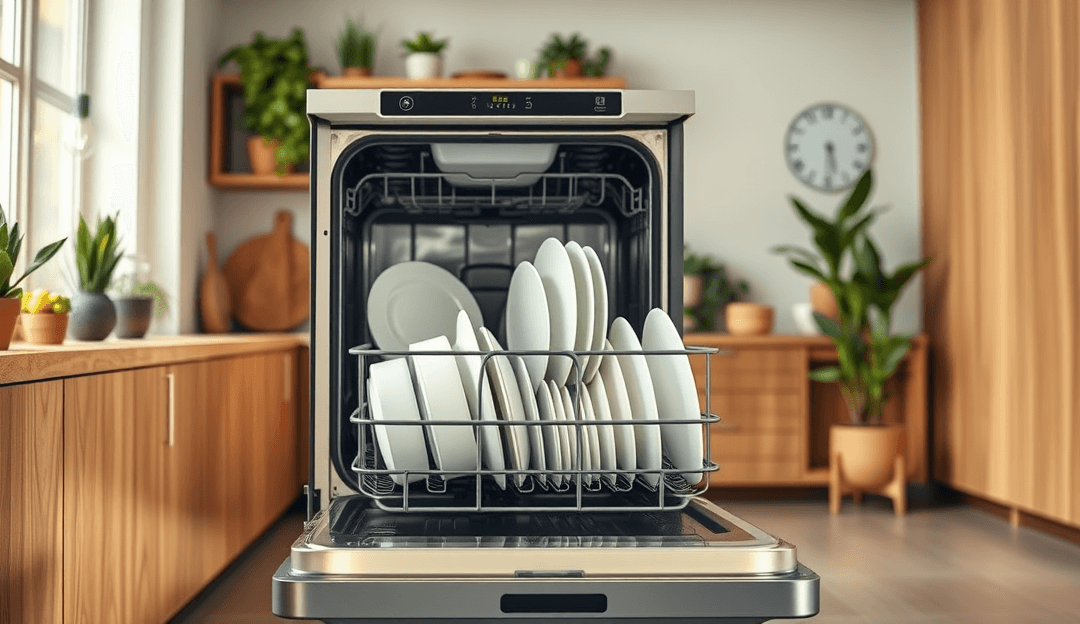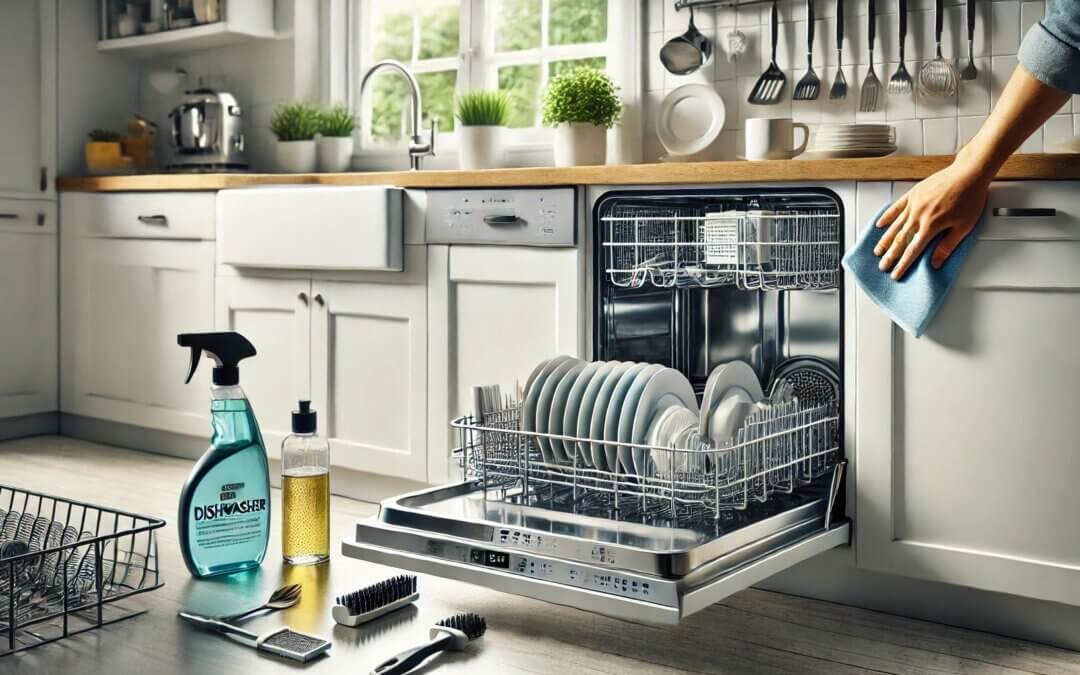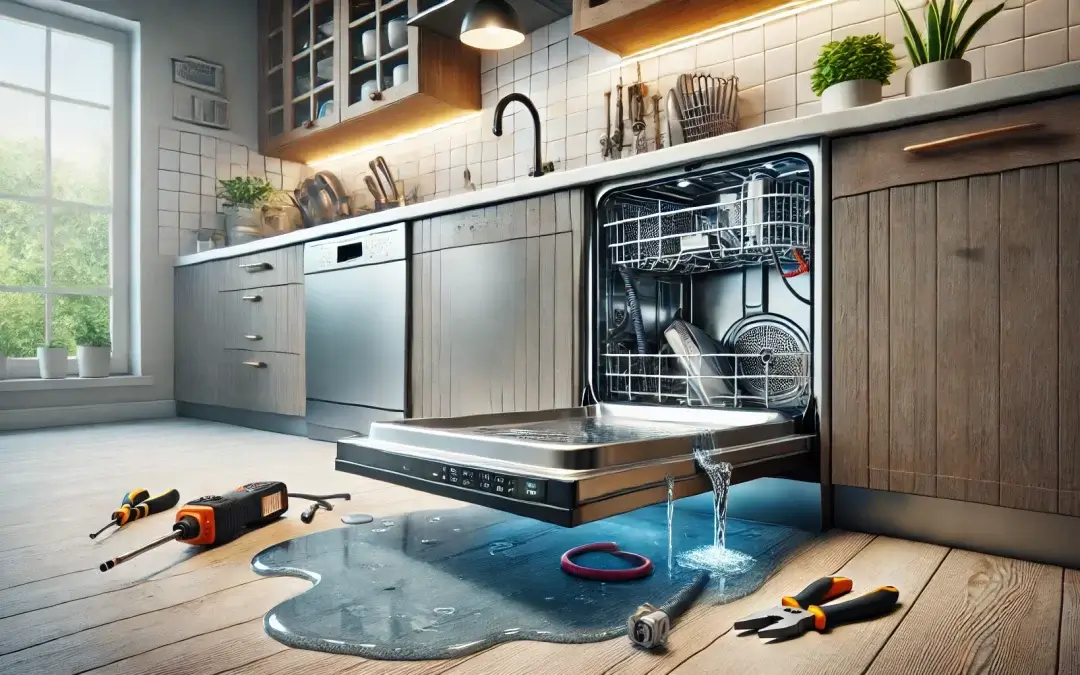
How to Fix a Dishwasher That Leaves Dishes Dirty
- Introduction
- 1. Check and Clean the Filter
- 2. Clean the Spray Arms
- 3. Check the Water Temperature
- 4. Use the Right Detergent
- 5. Load the Dishwasher Correctly
- 6. Run a Cleaning Cycle
- 7. Get Professional Help
- Conclusion
Introduction
Have you ever opened your dishwasher only to find food stuck on your dishes? That can be annoying, especially if you rely on your machine to do the dirty work for you. A common complaint is a dishwasher not cleaning dishes. In this easy-to-read guide, we will explore simple steps for dishwasher troubleshooting so you can fix dishwasher cleaning issues and get sparkling dishes again!
1. Check and Clean the Filter
Most dishwashers have a filter that catches small pieces of food. If it gets clogged, water cannot flow properly, causing dirty dishes after washing.
- Remove the bottom rack to see the filter at the base.
- Twist or lift the filter out. Be careful—check your manual if you are unsure.
- Rinse it under warm water and scrub away any debris with a soft brush.
- Put the filter back in its place properly.
2. Clean the Spray Arms
Spray arms shoot water around the dishwasher. If their tiny holes are blocked, your dishes might not get fully clean.
- Take out the spray arms. They may clip or screw off.
- Rinse them under warm running water.
- Use a toothpick or small brush to clear any stuck food bits.
- Reattach the spray arms when finished.
3. Check the Water Temperature
Hot water helps break down grease and stuck-on food. Ideally, your water should be between 120°F and 140°F (49°C–60°C).
- Before starting the dishwasher, run hot water in the sink for a minute to warm up the pipes.
- Use a thermometer to test how hot the water gets. If it’s too cool, increase your water heater setting (ask an adult for help if you’re not sure).
4. Use the Right Detergent
Using too much or too little soap can leave dishes dirty. Always follow the instructions on your dishwasher and detergent package.
- Pick a high-quality detergent made for your dishwasher.
- Measure it carefully—using more is not always better.
- Store detergent in a dry place, so it stays fresh.
5. Load the Dishwasher Correctly
Sometimes, how you place your dishes can cause problems. If items block the spray arms or are jammed too tightly, water may not reach everything.
- Leave enough space between plates and bowls so water can pass through.
- Place bigger pots around the edges to avoid blocking the center spray.
- Angle cups and glasses so water can drain off easily.
6. Run a Cleaning Cycle
Over time, dishwashers can get mineral buildup or smell bad. A cleaning cycle can remove these issues.
- Run the dishwasher empty with a dishwasher cleaner or a cup of white vinegar on the top rack.
- Use the hottest setting to break down grime.
- Wipe the inside afterward, especially the door edges and seals.
7. Get Professional Help
If you have tried these steps and your dishes still come out dirty, you might need expert assistance. Visit our Dishwasher Repair Ottawa page to learn more about how we can help. Our team at King Appliance Repair Company can fix tough problems like faulty pumps or blocked hoses.
Conclusion
A dishwasher not cleaning dishes is a common issue, but you can often solve it by cleaning filters, spray arms, and making sure the water is hot enough. Using the right amount of detergent and loading your machine correctly also helps prevent dirty dishes after washing. If all else fails, deciding between DIY and professional repairs is important. You can also check these useful tips to keep your other appliances in top shape:
- Clean Fridge Coils for Better Efficiency
- 5 Proven Freezer Maintenance Tips
- How to Replace a Worn-Out Oven Light
Keeping all your appliances in good condition makes home life easier. With these dishwasher maintenance tips, you can enjoy sparkling clean dishes and fewer headaches in the kitchen!





